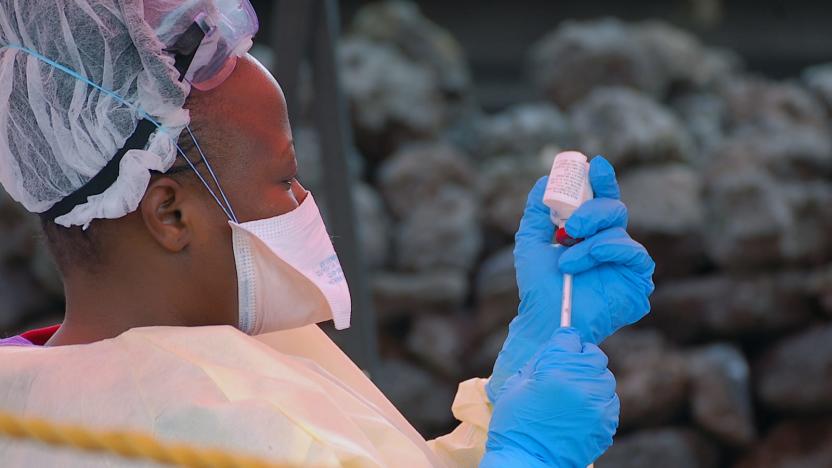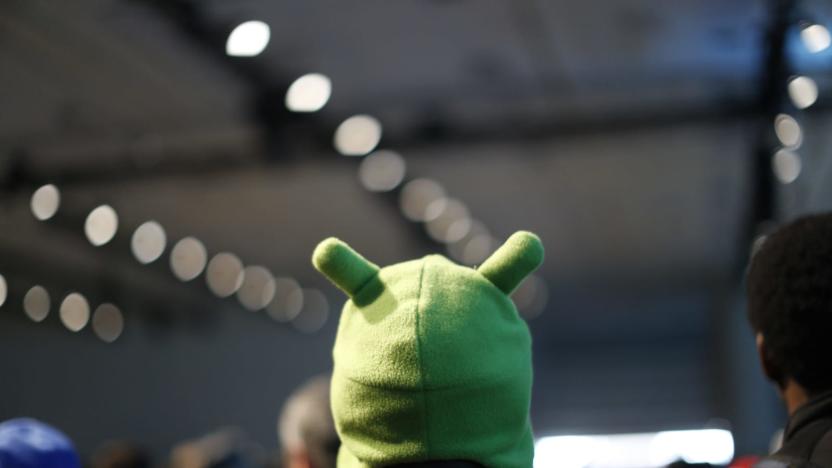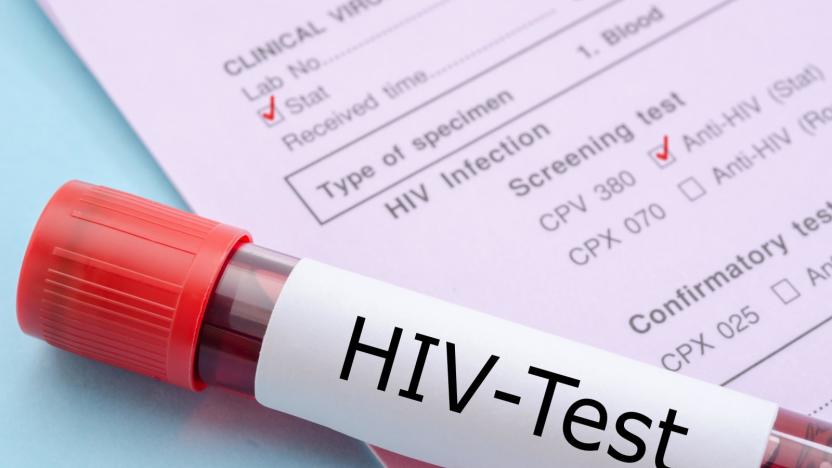virus
Latest

Scientists discover weird virus-like 'obelisks' in the human gut and mouth
Scientists have discovered mysterious virus-like ‘obelisks’ in the human gut and mouth. These tiny structures fall into the viroid class and seem to hang out inside of certain strains of bacteria, though not always.

Global ransomware attacks at an all-time high and the US is the primary target
Global ransomware attacks are on the rise, according to a report issued by Malwarebytes. The report shows a massive surge from July 2022 to June 2023, with the United States bearing the brunt of these attacks. The organization noted that of the 1,900 reported ransomware attacks collected, over 43 percent originate in the U.S, an increase of 75 percent from last year’s findings.

GE is working to put COVID-19 virus-detecting sensors in phones
Scientists at GE Research have been awarded a grant to develop tiny sensors that can be embedded inside phones to identify COVID-19 particles on surfaces.

FDA clears first AI device to spot hidden signs of COVID-19
The FDA has cleared an AI-powered armband for emergency use that can identify signs of COVID-19 in asymptomatic individuals using light sensors and a computer processor.

Watch the first trailer for Gillian Flynn's Amazon series 'Utopia'
Amazon has released the first trailer for Utopia and announced that it will debut on Prime Video on September 25th.

Autonomous robot uses UVC light to disinfect warehouses
Researchers from MIT have developed a new way to keep shared spaces free of the coronavirus and other pathogens: a UVC light-equipped robot.

Cyberattack forces Honda to suspend global production for a day
Honda was forced to suspend global production for a day due to a cyberattack that infiltrated the company's internal servers in Tokyo.

Stanford, Scripps and Fitbit try using wearables to detect infections
Stanford, Scripps Research and Fitbit have unveiled an initiative that, if successful, would use wearables to catch the early signs of infection. The project will study data from five different wearables, each of which will have its own algorithm.

Microsoft closes all of its stores due to coronavirus risk
Microsoft is closing its store locations around the world in response to the escalating coronavirus outbreak. In an email to customers, the company said, "We are closing Microsoft Store locations to help protect the health and safety of our customers and employees. During this unprecedented time, the best way we can serve you is to do everything we can to help minimize the risk of the virus spreading." Microsoft also said it will continue to pay employees for their regularly scheduled hours.

Google explains how it's tackling the coronavirus outbreak
Google's efforts to inform people about the coronavirus outbreak extend well beyond a search alert. The company has outlined all the ways it's addressing COVID-19, including a bid to stamp out misinformation. On top of the SOS Alert (with news and tips) in web searches, you'll also see Knowledge Panels to explain the condition and how to deal with it. YouTube, meanwhile, will direct people to the WHO and local organizations through the homepage and provide ad space to government organizations in affected areas. Google Maps will also bring up "helpful and reliable local information," although the company didn't say what that entailed.

The EU just approved a vaccine to prevent Ebola
Today, the European Union granted an Ebola vaccine "conditional marketing authorization." The vaccine, developed by the pharmaceutical giant Merck, is known as Ervebo. It's the first human Ebola vaccine to be approved by the EU.

Samsung tweet suggests scanning your smart TV for malware every few weeks
This morning a Samsung customer support account tweeted an odd warning that, to prevent malicious software attacks on your smart TV, you should scan it for viruses every few weeks. It even included an instructional video to help you do so. The tweet, first spotted by The Verge, was short lived. Samsung has since removed it, but it existed long enough to raise a few red flags.

Auction for a laptop full of malware closes at $1.3 million (updated)
Today, bidding on a laptop packed with some of the world's most dangerous malware closed at $1.345 million. Dubbed "The Persistence of Chaos," the Samsung NC10 contains six viruses that have caused an estimated $95 billion in damages. Despite what you might think, it's not meant to be a tool for any world domination scheme. It's intended strictly as an art piece -- though it could be used for academic purposes -- and it's currently isolated and air-gapped to prevent foul play.

Gene-modified viruses rescue patient from drug-resistant 'superbug'
Doctors normally resort to bacteriophages (bacteria-killing viruses) to kill antibiotic-resistant "superbugs" only when they've run out of options, in part because it's difficult to find the ideal example. It can take months or more just to find a viable candidate. However, they might have a faster solution -- researchers have successfully used genetically modified viruses to treat a chronic, resistant infection in a teenage girl who otherwise faced a bleak prognosis following a lung transplant.

Jaguar Land Rover thinks its cars can stop diseases from spreading
Tesla's Bioweapon Defense Mode might have nothing on what Jaguar Land Rover does to fight pathogens. The British automaker is exploring the use of ultraviolet light to kill bacteria, viruses and allergens in the cabin. The air conditioning system inside future vehicles would blast the unwanted organisms with medical-grade UV-C light, breaking down the intruder's DNA and rendering it harmless.

Two thirds of Android antivirus apps don't work properly
It can be wise to secure your Android phone with antivirus software, but which ones can you count on? You can rule out most of them, apparently. AV-Comparatives has tested 250 antivirus apps for Google's platform, and only 80 of them (just under one third) passed the site's basic standards -- that is, they detected more than 30 percent of malicious apps from 2018 and had zero false positives. Some of the apps that fell short would even flag themselves, according to the researchers.

Anonymous deals with its QAnon branding problem
When you're a notorious hacking entity like Anonymous, and a pro-Trump conspiracy cult (QAnon) steals your branding (while claiming you're the impostor), the obvious thing to do is declare cyberwar. That's exactly what Anonymous did this past week in a press announcement, followed by a social media and press offensive. So far Anonymous has managed to take over QAnon's hashtags (while adding #OpQAnon and others) and dox a couple hundred members of Trump's pedophilia-obsessed, "deep state" doomsday cult. QAnon's mouthpieces responded exactly as we'd expect, with taunts and tweets saying: "These people are STUPID!! They have no brains and no skills. Typical 'empty threat' terrorists! But DO NOT click their links!! Virus city baby!!"

TSMC says virus that shut down its plants is a WannaCry variant
Over the weekend, chip manufacturer TSMC reported that some of its fabrication plants had to be shut down because of a virus that had infected the company's systems. While some were able to resume operations quickly, others were out of commission for up to a day. Now, TSMC has blamed a WannaCry variant for the disruption. Bloomberg reports that the company has resumed full operations but shipment delays are expected.

Chip giant TSMC struggles with virus infections at its factories
Many of the tech products launching this fall might have just run into production setbacks. Giant chip manufacturer TSMC has warned that several of its fabrication plants suffered virus infections on August 3rd, disrupting production. Some of these plants recovered in a "short period of time," it said, but others wouldn't resume business as usual for "one day." The company dismissed claims that this was a hack, but didn't initially provide details about the virus or the potential infection path.

HIV vaccine delivers promising results in human tests
A Harvard-led team of scientists has made important progress in the quest to prevent HIV infections. They've had early success testing a multi-strain vaccine in humans -- everyone who received the drug produced at least some kind of anti-HIV immune response, with at least 80 percent producing more advanced responses. The researchers also found that the same vaccine protected 67 percent of rhesus monkeys against simian-human immunodeficiency virus, which suggests it might be effective against HIV.







